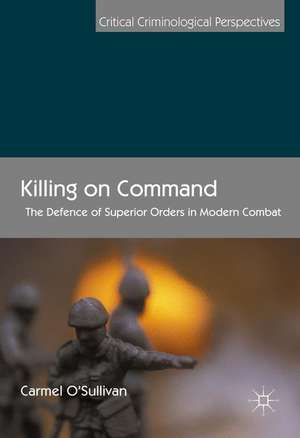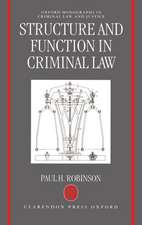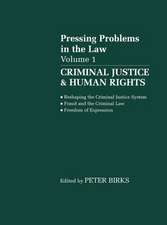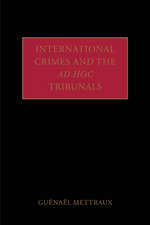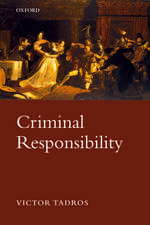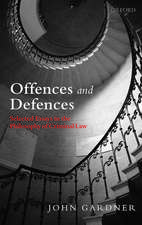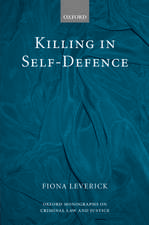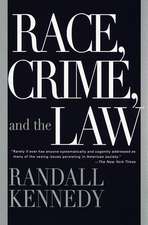Killing on Command: The Defence of Superior Orders in Modern Combat: Critical Criminological Perspectives
Autor Carmel O'Sullivanen Limba Engleză Hardback – 26 oct 2016
This book explores the unique social and environmental factors which influence soldiers to commit war crimes. With a focus on decision-making processes, this monograph provides a significant interdisciplinary analysis of how soldiers decide to follow the commands of their superior officers, even if that means acting illegally. Making the key distinction between normal civilian society and the shocking realities of war, the author facilitates the reader with a comprehensive understanding of what a front-line soldier faces in contemporary combat situations.
Killing on Command presents the limits of the law in preventing the occurrence of war crimes. Realistic and practical measures for armed conflict, including the regulation and prevention of violence, and the just implementation of legal standards are all questioned and examined in depth. Given a current focus on the regulation of conduct in war, and the recent prosecution of soldiers, this bookwill be of particular interest to scholars in the fields of criminology and international relations, as well as policy-makers.
Din seria Critical Criminological Perspectives
-
 Preț: 324.62 lei
Preț: 324.62 lei - 15%
 Preț: 529.92 lei
Preț: 529.92 lei - 18%
 Preț: 730.35 lei
Preț: 730.35 lei - 15%
 Preț: 641.85 lei
Preț: 641.85 lei - 18%
 Preț: 888.97 lei
Preț: 888.97 lei - 18%
 Preț: 1003.24 lei
Preț: 1003.24 lei -
 Preț: 388.72 lei
Preț: 388.72 lei -
 Preț: 391.61 lei
Preț: 391.61 lei - 18%
 Preț: 781.94 lei
Preț: 781.94 lei - 15%
 Preț: 638.43 lei
Preț: 638.43 lei - 15%
 Preț: 469.22 lei
Preț: 469.22 lei - 15%
 Preț: 690.44 lei
Preț: 690.44 lei -
 Preț: 398.74 lei
Preț: 398.74 lei - 15%
 Preț: 636.30 lei
Preț: 636.30 lei -
 Preț: 392.37 lei
Preț: 392.37 lei - 18%
 Preț: 725.75 lei
Preț: 725.75 lei -
 Preț: 384.70 lei
Preț: 384.70 lei - 18%
 Preț: 782.72 lei
Preț: 782.72 lei - 15%
 Preț: 642.51 lei
Preț: 642.51 lei - 18%
 Preț: 1007.03 lei
Preț: 1007.03 lei -
 Preț: 446.26 lei
Preț: 446.26 lei - 15%
 Preț: 693.39 lei
Preț: 693.39 lei - 18%
 Preț: 1001.65 lei
Preț: 1001.65 lei - 18%
 Preț: 726.23 lei
Preț: 726.23 lei -
 Preț: 417.30 lei
Preț: 417.30 lei - 18%
 Preț: 781.62 lei
Preț: 781.62 lei - 15%
 Preț: 703.85 lei
Preț: 703.85 lei -
 Preț: 212.06 lei
Preț: 212.06 lei - 15%
 Preț: 640.06 lei
Preț: 640.06 lei -
 Preț: 394.51 lei
Preț: 394.51 lei - 15%
 Preț: 640.06 lei
Preț: 640.06 lei - 15%
 Preț: 640.88 lei
Preț: 640.88 lei -
 Preț: 416.71 lei
Preț: 416.71 lei - 18%
 Preț: 1111.22 lei
Preț: 1111.22 lei
Preț: 527.32 lei
Preț vechi: 620.38 lei
-15% Nou
Puncte Express: 791
Preț estimativ în valută:
100.91€ • 104.26$ • 83.94£
100.91€ • 104.26$ • 83.94£
Carte tipărită la comandă
Livrare economică 19 martie-02 aprilie
Preluare comenzi: 021 569.72.76
Specificații
ISBN-13: 9781137495808
ISBN-10: 1137495804
Pagini: 224
Ilustrații: IX, 226 p.
Dimensiuni: 148 x 210 x 19 mm
Greutate: 0.41 kg
Ediția:1st ed. 2016
Editura: Palgrave Macmillan UK
Colecția Palgrave Macmillan
Seria Critical Criminological Perspectives
Locul publicării:London, United Kingdom
ISBN-10: 1137495804
Pagini: 224
Ilustrații: IX, 226 p.
Dimensiuni: 148 x 210 x 19 mm
Greutate: 0.41 kg
Ediția:1st ed. 2016
Editura: Palgrave Macmillan UK
Colecția Palgrave Macmillan
Seria Critical Criminological Perspectives
Locul publicării:London, United Kingdom
Cuprins
Chapter 1. Introduction.- Chapter 2. The Development of the Defence of Superior Orders.- Chapter 3. The Law Surrounding Obedience.- Chapter 4. Military Training: The Creation of the Modern Soldier.- Chapter 5. The Trained Soldier in Contemporary Combat.- Chapter 6. The Influence of Contemporary Combat on the Modern Soldier: A Force for Good or Bad.- Chapter 7. Conclusion.
Recenzii
“The book makes a valuable contribution to the extant scholarly literature in that it provides a critical assessment of the overall role of the state in the occurrence of war crimes. … provides a framework by which to examine how to prevent or curtail the commission of these crimes in the first place. For all of these reasons, many will find reading this book both thought-provoking and worthwhile.” (Richard Ehui, Medicine, Conflict and Survival, Vol. 32 (4), February, 2017)
Notă biografică
Carmel O'Sullivan is a Senior Lecturer in Law at the Queensland University of Technology, Australia. She specialises in the fields of Criminology of War, International Criminal Law and International Humanitarian Law. Her primary area of research focuses on the individual’s responsibility in contemporary combat and whether the law is reflective of modern warfare.
Textul de pe ultima copertă
This book explores the unique social and environmental factors which influence soldiers to commit war crimes. With a focus on decision-making processes, this monograph provides a significant interdisciplinary analysis of how soldiers decide to follow the commands of their superior officers, even if that means acting illegally. Making the key distinction between normal civilian society and the shocking realities of war, the author facilitates the reader with a comprehensive understanding of what a front-line soldier faces in contemporary combat situations.
Killing on Command presents the limits of the law in preventing the occurrence of war crimes. Realistic and practical measures for armed conflict, including the regulation and prevention of violence, and the just implementation of legal standards are all questioned and examined in depth. Given a current focus on the regulation of conduct in war, and the recent prosecution of soldiers, this bookwill be of particular interest to scholars in the fields of criminology and international relations, as well as policy-makers.
Caracteristici
Provides a timely investigation into how and why illegal killing occurs in war Draws on interdisciplinary analysis of the social, psychological and biological factors which affect a soldier's mental state Examines the legality of the practicalities and realities faced by a modern soldier
